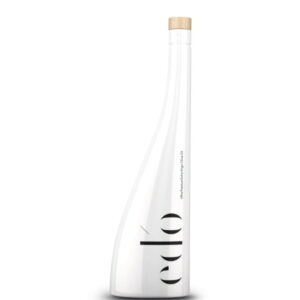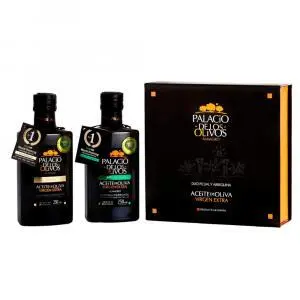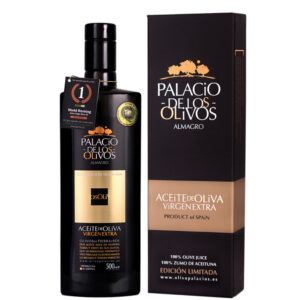Are you a fan of olive oil? Well, here’s some good news for you! Recent research suggests that this golden liquid could do more than just enhance the flavor of your meals. It might also have the potential to reduce your risk of lung cancer. But before we get too excited, let’s take a closer look at what science has to say about it. In this blog post, we’ll explore the latest findings on the link between olive oil and lung cancer prevention to help you make informed decisions about your health. Get ready to learn how one simple dietary change can make a big difference!
The Role of Oxidative Stress in Lung Cancer Development
Oxidative stress is a process that occurs when the body produces too many reactive oxygen species (ROS), which can damage cells. ROS are produced as a by-product of normal cellular metabolism, but they can also be generated by exposure to environmental toxins, such as tobacco smoke. Over time, oxidative stress can lead to the development of lung cancer.
There are several ways in which oxidative stress may contribute to the development of lung cancer. First, ROS can damage DNA and other cellular components, leading to genetic mutations that can promote tumor growth. Additionally, oxidative stress can alter the expression of genes that regulate cell proliferation and cell death, resulting in the uncontrolled growth of cancerous cells. Finally, oxidative stress can weaken the immune system, making it less able to fight off cancer cells.
Fortunately, there are ways to reduce your risk of developing lung cancer by reducing oxidative stress. One way is to consume foods that contain antioxidants, such as olive oil. Antioxidants help to neutralize ROS and protect cells from their damaging effects. Additionally, you can try to avoid exposure to environmental toxins and quit smoking if you currently smoke cigarettes. By taking these steps, you can help reduce your risk of developing lung cancer.
How Olive Oil’s Antioxidant Properties Combat Oxidative Stress
Oxidative stress is a major contributing factor to the development of lung cancer. Antioxidants are substances that can neutralize harmful oxidative molecules, and olive oil is rich in antioxidants. In fact, one type of antioxidant found in olive oil, polyphenols, has been shown to protect against lung cancer specifically.
Polyphenols are a type of phytonutrient (plant nutrient) that act as powerful antioxidants. Olive oil is especially high in a subgroup of polyphenols called phenolic compounds. These phenolic compounds have been shown to scavenge harmful oxygen radicals and protect cells from oxidative damage.
In one study, rats were exposed to a lung carcinogen and then given either olive oil or corn oil. The rats that were given olive oil had significantly lower levels of oxidative damage and less cell death than the corn oil group. Additionally, the olive oil group had higher levels of certain enzymes that help protect against oxidative stress.
These findings suggest that the antioxidants in olive oil may help protect against the development of lung cancer by reducing oxidative stress. If you’re looking to lower your risk of lung cancer, adding olive oil to your diet is a simple and delicious way to do so!
The Link Between Olive Oil and Reduced Lung Cancer Risk: What the Research Shows
In recent years, an increasing body of research has started investigating the potential connection between olive oil and a reduced risk of lung cancer. Although still in early stages, the findings so far show promise. Here’s a glimpse of what the research reveals:
A study published in the journal Cancer Prevention Research discovered that regular consumption of extra-virgin olive oil might help lower the risk of developing lung cancer. The study monitored a group of Italian men and women for an average of eight years. Those who regularly consumed extra-virgin olive oil faced a significantly lower risk of developing lung cancer compared to those who did not.
Another study, published in the journal Thoracic Oncology, also found that regular consumption of olive oil could help lower the risk of developing lung cancer. This study tracked a group of Spanish men and women for an average of 12 years. Those who regularly consumed olive oil experienced a significantly lower risk of developing lung cancer compared to those who did not.
While further research is necessary to confirm these findings, the current evidence suggests that regular consumption of olive oil may help reduce the risk of developing lung cancer. If you’re seeking ways to lower your cancer risk, consider adding olive oil to your diet.
What Makes Olive Oil Different from Other Oils in Terms of Lung Cancer Prevention?
Specific types of fat, including olive oil, have been linked to a lower risk of lung cancer. Olive oil contains monounsaturated fats, which some studies have associated with a decreased risk of lung cancer.
Understanding the Components of Olive Oil that May Help Prevent Lung Cancer
Olive oil contains several components that may help prevent lung cancer. The most well-known is oleic acid, a monounsaturated fat type. In some studies, monounsaturated fats have been shown to decrease the risk of lung cancer. Other potential cancer-preventing compounds in olive oil include polyphenols and antioxidants.
Polyphenols are a type of phytonutrient (plant nutrient) that has antioxidant and anti-inflammatory properties. Several studies have shown that polyphenols may reduce the risk of lung cancer. The most well-studied polyphenol in olive oil is hydroxytyrosol, which has been shown to protect against DNA damage.
Antioxidants are substances that scavenge harmful toxins called free radicals. Free radicals can damage cells and lead to the development of cancerous tumors. Antioxidants like vitamins C and E can neutralize free radicals and help protect cells from damage. Some studies have found that people who consume more antioxidants have a lower risk of developing lung cancer.
Although further research is necessary, existing evidence suggests that olive oil, with its beneficial compounds like oleic acid, polyphenols, and antioxidants, may help protect against lung cancer.
The Impact of Different Types of Olive Oil on Lung Cancer Risk Reduction
Olive oil, a healthy fat, offers numerous health benefits, including potentially lowering the risk of lung cancer. However, the effectiveness of olive oil in reducing lung cancer risk varies among different types.
Extra-virgin olive oil, the highest quality olive oil, contains the most antioxidants, which may help protect against cancer. A study involving over 1,600 Italian adults revealed that those using extra-virgin olive oil had a 41% lower risk of developing lung cancer compared to those who did not use any olive oil.
Virgin olive oil, another high-quality option, contains fewer antioxidants than extra-virgin olive oil. A study with over 2,000 Spanish adults showed that those using virgin olive oil had a 26% lower risk of developing lung cancer compared to those who did not use any olive oil.
Non-virgin olive oils, which are of lower quality, provide fewer health benefits. A study of over 6,000 Greek adults found no reduction in lung cancer risk for those using non-virgin olive oils.
To reduce your lung cancer risk with olive oil, choose high-quality extra-virgin or virgin varieties.
The Best Ways to Incorporate Olive Oil into Your Diet to Lower Your Risk of Lung Cancer
Extra virgin olive oil is the healthiest type of olive oil. It’s made from pure, cold-pressed olives, and has the highest level of antioxidants among all types of olive oil.
Antioxidants are important because they help protect your cells from damage. This is especially important for smokers, or former smokers, as they have an increased risk of lung cancer. The antioxidants in extra virgin olive oil can help to protect their cells from the damage caused by smoking.
There are many ways to incorporate extra virgin olive oil into your diet. You can use it instead of other oils when cooking or drizzle it over vegetables or salads. It can also be added to homemade sauces or dressings.
Look for extra virgin olive oils labeled as Cold Pressed, Virgin, or First Pressed. These terms signify that the olives underwent pressing without heat or chemicals, a process that helps preserve their healthy antioxidants.
Can Topical Application of Olive Oil Help Prevent Lung Cancer?
Lung cancer is the leading cause of cancer death worldwide, and cigarettes are the main culprit. But other risk factors include air pollution and exposure to secondhand smoke. Could something as simple as olive oil help prevent this disease?
Some studies suggest that it might. For example, one 2013 study found that topical application of olive oil reduced inflammation and cell damage in the lungs of rats exposed to cigarette smoke. And a 2015 study showed that a compound in olive oil called oleocanthal could kill lung cancer cells in vitro.
Of course, more research is needed to confirm these findings in humans. But it’s possible that olive oil could help protect your lungs from cancer-causing agents. So if you’re looking for ways to reduce your risk of lung cancer, adding some olive oil to your diet may be a good place to start.
Combining Olive Oil with Other Lifestyle Factors to Further Reduce Lung Cancer Risk
There are a number of lifestyle factors that can increase your risk of developing lung cancer. However, combining olive oil with other healthy lifestyle choices can help to further reduce your risk.
Some of the best ways to lower your lung cancer risk include:
- Quitting smoking
- Avoiding secondhand smoke
- Eating a healthy diet
- Exercising regularly
- Limiting your exposure to air pollution and other environmental toxins
Adding olive oil to this mix can help to create an even stronger defense against lung cancer. Studies have shown that olive oil can help to protect against the damage caused by tobacco smoke and other environmental toxins. Additionally, olive oil’s antioxidants can help keep cells healthy and prevent them from becoming cancerous.
Potential Drawbacks of Olive Oil Consumption and What You Need to Know Before Adding it to Your Diet.
Recent studies have shown that olive oil may help protect against lung cancer, but its consumption has potential drawbacks. Here’s what you need to know before adding it to your diet:
Olive oil is high in calories and fat. A tablespoon of olive oil contains 120 calories and 14 grams of fat, so it’s important to be mindful of your portion sizes if you’re trying to lose weight or maintain a healthy weight.
Olive oil is also high in omega-6 fatty acids, which are pro-inflammatory. Inflammation is linked to a number of chronic diseases, such as heart disease, arthritis, and cancer. If you already have a chronic inflammatory condition, you may want to avoid olive oil or consume it in moderation.
Finally, store olive oil properly to prevent it from going rancid quickly. Avoid rancid olive oil, as it can cause gastrointestinal distress. Ensure that you keep your olive oil in a cool, dark place away from direct sunlight.














